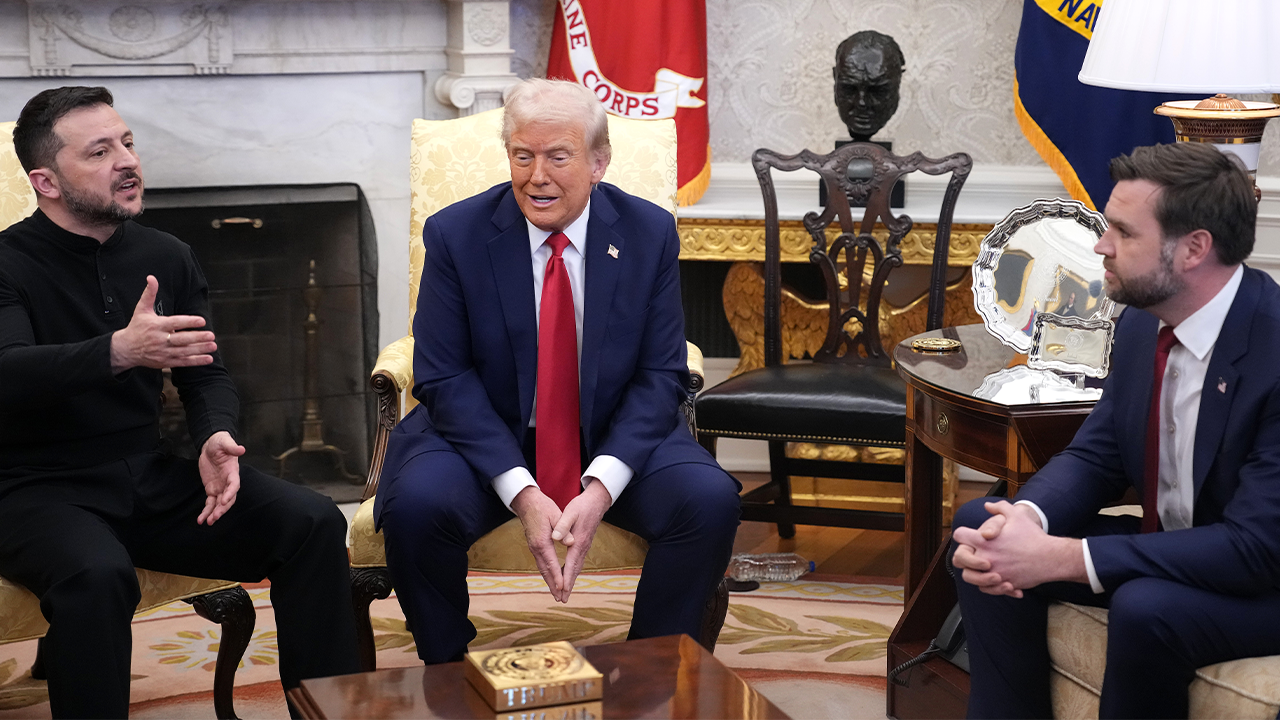JD Vance steps into spotlight defending Trump’s foreign policy in Oval Office dustup with Zelenskyy

Vice President JD Vance made headlines on Friday for defending President Donald Trump and his administration’s foreign policy agenda during a tense exchange with Ukrainian President Volodymyr Zelenskyy in the Oval Office. This unexpected spotlight on the vice president shed light on the significant role Vance plays in advancing the America First agenda both domestically and internationally.
The meeting with Zelenskyy took a contentious turn, with Trump ultimately announcing an end to peace negotiations and requesting that the Ukrainian leader leave the White House. The source familiar with the meeting revealed that both Trump and Vance were caught off guard by Zelenskyy’s behavior, as there was no expectation of such a combative exchange.
This moment in the Oval Office marked a rare instance where a vice president stepped into a prominent role typically reserved for the president. Edward-Isaac Dovere, a senior CNN reporter, noted that Vance’s intervention may have had a significant impact on American foreign policy, likening it to Vice President Dick Cheney’s influence on the decision to invade Iraq.
Prior to the meeting with Zelenskyy, Vance had made waves at the Munich Security Conference by emphasizing the threat of censorship and illegal immigration as more pressing issues for European nations than external threats from countries like Russia and China. These remarks sparked backlash from European leaders, including German Defense Minister Boris Pistorius, who interpreted Vance’s comments as a comparison to authoritarian regimes.
During the tense exchange in the Oval Office, Zelenskyy challenged Vance’s stance on diplomacy and Russia’s past behavior. Vance stood firm, asserting that the path forward was through diplomacy and criticizing Ukraine for its recruitment challenges. Trump also weighed in, warning Zelenskyy that his country was in “big trouble” and halting peace negotiations.
Following the heated exchange, Zelenskyy left the White House without signing a minerals agreement that would have granted the U.S. access to Ukraine’s resources. Trump took to social media to express his disappointment, stating that Zelenskyy was not ready for peace if America was involved. Zelenskyy, on the other hand, thanked the U.S. for its support and reiterated Ukraine’s commitment to achieving lasting peace.
The fallout from the meeting drew mixed reactions from lawmakers on Capitol Hill, with Republican Senator Lindsay Graham calling for Zelenskyy’s resignation and Democratic Senate Minority Leader Chuck Schumer accusing Trump and Vance of doing Putin’s bidding. The tension between the U.S. and Ukraine underscores the complexities of international diplomacy and the challenges of navigating conflicting interests.
In conclusion, Vice President JD Vance’s defense of President Trump’s foreign policy agenda has thrust him into the spotlight, showcasing the significant role he plays in shaping American diplomacy. The encounter with Zelenskyy highlighted the delicate balance of power and the complexities of international relations in an increasingly volatile global landscape.




